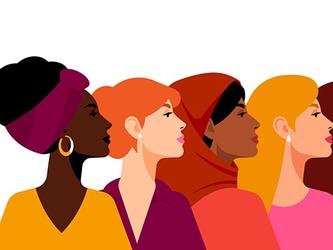Minority ethnic groups want brands to be engaged in social issues

A two-year research project from WPP, with work from Kantar, BAV and Choreograph, found that more people from minority ethnic groups wanted brands to be involved in conversations on social issues, regardless of the topic, compared with white audiences.
Among individuals from minority ethnic groups surveyed in online interviews, 72% agreed that brands should be in conversations about racial equality – the joint highest level of any other issues asked about in the research, alongside equality for people with disabilities.
In contrast, around half ( 53%) of white participants and 56% of the UK average population agreed that brands should be involved in conversations about racial equality. The research found that 80% of surveyed white consumers and 92% of consumers from minority ethnic groups are concerned about the issue.
For the average UK population, climate change and sustainability were considered the most important issues for brands to be involved in conversations about ( 65%) and these were also key for minority ethnic groups ( 71%).
Around three-quarters ( 77%) of people from minority ethnic groups surveyed for the research agreed with the claim that they ‘actively choose to buy brands that have a strong social purpose and try to do good’, compared to 56% of white respondents.
The research, published in ‘The Consumer Equality Equation’ report, also found that people from minority ethnic groups will account for almost a third of the UK adult population by 2061, with a projected cumulative disposable income of £575bn annually.
The study was a two year-long partnership between WPP, GroupM and Ogilvy Consulting with research from Kantar, BAV and Choreograph. It explores in detail different aspects and categories that make up a person’s consumer experience: health, employment, finance, retail, clothing and fashion, beauty and personal care, food and beverage, luxury, and the high street.
Karen Blackett, president of WPP in the UK, said: “Missed or seemingly small consumer opportunities all add up. Engaging just 1% of minority ethnic groups now will have an immediate effect for brands which multiplies over time to bring medium and long-term commercial growth. By taking time to understand the varied and nuanced consumer experiences of people from different ethnic groups, brands have the opportunity to make a positive and lasting impact both on society and their bottom line.”
Shelina Janmohamed, vice-president of Islamic marketing at Ogilvy Consulting, and lead author of the report, said: “We set out to ask a simple but infrequently asked question that is fundamental to future brand success: what does it mean to stand in the shoes of minority ethnic consumers? Our research has helped us create a framework for our clients and their customers that addresses systemic consumer inequality and leads to business growth.”
Methodology
Research conducted for the report included a quantitative online survey (carried out in December 2021 by Sapio Research) with 4,515 adults across the UK, aged 18-75. Target respondents consisted of the following ethnicities under the main headings: 1,000 South Asian, 1005 Black, 502 East and South East Asian, 501 Middle Eastern, 503 Mixed Ethnicity, 1,004 White. Data was weighted using ONS results.
The study also involved 18 paired online qualitative depth interviews with a range of age groups during March 2022.

We hope you enjoyed this article.
Research Live is published by MRS.
The Market Research Society (MRS) exists to promote and protect the research sector, showcasing how research delivers impact for businesses and government.
Members of MRS enjoy many benefits including tailoured policy guidance, discounts on training and conferences, and access to member-only content.
For example, there's an archive of winning case studies from over a decade of MRS Awards.
Find out more about the benefits of joining MRS here.














0 Comments